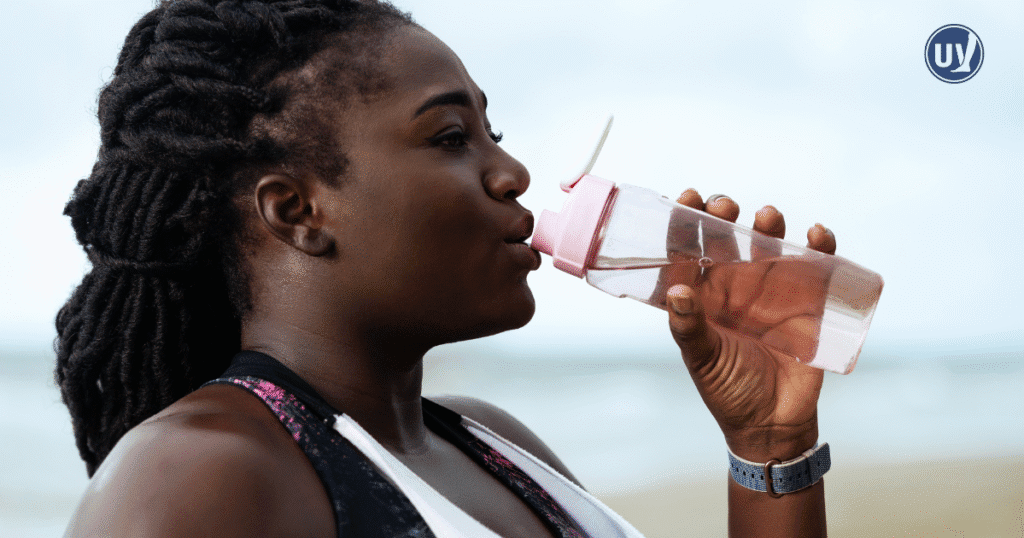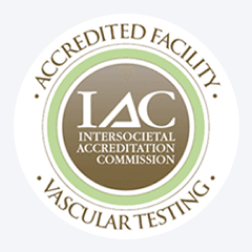Contents
- Understanding the Leg Heaviness Symptom
- Common Causes of Leg Heaviness
- Recognizing When to Seek Medical Advice
- Leg Pain Management and Symptom Relief
- Treatment Options for Vein-Related Leg Heaviness
- Empowering Patients: Taking Charge of Your Vein Health
- Improving Quality of Life Through Early Action
- Frequently Asked Questions
Ever feel like your legs are dragging by the end of the day, or notice a constant sense of fatigue in your lower limbs? You’re not alone. Leg heaviness is a common issue that many people dismiss as “just part of life.” But what if it’s trying to tell you something more important about your vein health?
Leg heaviness can be more than a minor annoyance. It’s often an early sign of underlying vein and vascular conditions, such as chronic venous insufficiency. Ignoring it could mean missing the chance to prevent more serious complications down the road.
From lifestyle habits like prolonged sitting or standing to specific vein issues, understanding what causes leg heaviness is the first step toward relief. By recognizing the signs and seeking appropriate care, you can protect your vein health and regain the energy and comfort your legs deserve.
Understanding the Leg Heaviness Symptom
Leg heaviness can feel like a dragging weight or fatigue in the legs. It often occurs after standing or sitting for long periods. This symptom can affect mobility and daily activities.
The sensation of leg heaviness might be accompanied by other symptoms. These can include swelling, visible veins, or even pain. Understanding these signs helps in identifying potential vein issues.
Potential causes for leg heaviness include:
- Poor vein circulation
- Varicose veins
- Deep vein thrombosis
Recognizing leg heaviness as a symptom of a potential condition is important. It can lead you to seek guidance for vein health concerns. A proactive approach can prevent further complications.
Common Causes of Leg Heaviness
Leg heaviness isn’t just ordinary fatigue, it’s often a sign of something happening beneath the surface. Several factors can contribute, and recognizing them is the first step toward relief.
When the veins in the legs don’t work properly, blood can begin to pool, creating a heavy or weighted sensation. Staying still for long periods can make this worse by slowing down circulation. Carrying extra weight can also put added strain on the veins, intensifying that feeling of heaviness.
For many women, pregnancy brings on similar symptoms. Hormonal changes, increased blood volume, and the growing uterus place extra pressure on the veins, making heaviness especially common in later stages.
Everyday choices and health conditions matter too. A diet lacking in nutrients, poor hydration, and certain medical issues can all make heavy legs more noticeable.
Vein and Vascular Conditions
Vein and vascular health play a significant role in leg heaviness. Chronic venous insufficiency (CVI) is a leading cause of this symptom.
In CVI, the veins have difficulty pushing blood back up to the heart. When the valves inside the veins weaken or become damaged, blood begins to pool in the legs instead of flowing upward. Over time, this buildup increases pressure within the veins, leading to symptoms such as swelling, heaviness, and discomfort.
Varicose veins, another common issue, arise when veins become enlarged and twisted. They can cause visible bulging as well as heaviness and pain.
Deep vein thrombosis (DVT), a serious condition, occurs when a blood clot forms in a deep vein. Leg heaviness from DVT requires immediate medical attention due to potential complications.
Addressing vein and vascular issues is crucial. Early diagnosis and treatment can prevent more severe health problems from developing.
Recognizing When to Seek Medical Advice
Experiencing leg heaviness occasionally is common. However, when it occurs frequently or alongside other symptoms, it may be time to consult a healthcare professional.
Persistent heaviness, especially with pain or swelling, might indicate a more serious issue. Ignoring these signs can lead to complications.
Consider seeking medical advice if you notice:
- Persistent or worsening leg heaviness
- Swelling, redness, or warmth in the legs
- Pain that affects daily activities
Early diagnosis can prevent complications and improve your overall health. Trust your instincts and prioritize your well-being.
Leg Pain Management and Symptom Relief
Managing leg pain and heaviness often requires a combination of strategies, starting with lifestyle changes that support better vein health.
Regular movement is one of the most effective ways to ease discomfort. Exercise promotes healthy blood flow and strengthens the muscles that help push blood back toward the heart. Even simple activities like walking, swimming, or cycling can make a noticeable difference over time.
Nutrition also plays an important role. A balanced, fiber-rich diet helps with weight management, which in turn reduces pressure on the veins. Staying mindful of healthy eating habits can help lessen symptoms and support long-term vascular health.
For more immediate relief, compression stockings are a widely recommended option. These garments gently squeeze the legs to improve circulation, decrease swelling, and provide a sense of lightness for those struggling with heaviness or pain.
Because every individual’s situation is unique, it’s important to talk with a vein specialist about your symptoms and concerns. A personalized care plan ensures that you receive the most effective strategies for lasting relief and improved quality of life.

Treatment Options for Vein-Related Leg Heaviness
Several effective treatments address vein-related leg heaviness. These options focus on reducing symptoms and improving vein function.
Minimally invasive procedures are often preferred due to quick recovery times. One such option is sclerotherapy, which involves injecting a solution into affected veins to collapse and close them off.
Endovenous laser treatment (EVLT) is another option. This technique uses laser energy to collapse and seal varicose veins.
It’s always recommended to consult a healthcare professional to determine the best treatment for your needs. Early intervention can lead to significant improvements in quality of life.
Empowering Patients: Taking Charge of Your Vein Health
Taking control of your vein health is empowering. Educate yourself about your condition and actively participate in your care.
Work closely with your healthcare team. This collaboration ensures personalized strategies that align with your lifestyle and health goals. Your proactive approach can lead to better outcomes and improved well-being.
Improving Quality of Life Through Early Action
Addressing leg heaviness symptoms early can lead to significant improvements in quality of life. Proactive measures prevent complications and enhance overall well-being.
By understanding the causes and seeking timely treatment, you can enjoy greater mobility, comfort, and confidence in your daily life. Don’t wait to take control of your vein health—find a United Vein & Vascular Centers clinic near you today and start feeling lighter on your feet tomorrow.
Frequently Asked Questions
Persistent leg heaviness can result from poor vein circulation, varicose veins, chronic venous insufficiency, or lifestyle factors such as prolonged sitting or standing. Early recognition of these causes helps prevent complications and improves daily comfort.
Frequent or worsening leg heaviness, swelling, redness, or pain may indicate serious conditions like deep vein thrombosis or chronic venous insufficiency. Prompt medical evaluation ensures safe management and prevents complications.
Treatments for vein-related leg heaviness include lifestyle adjustments, compression stockings, minimally invasive procedures like sclerotherapy, and endovenous laser therapy. A personalized approach provides lasting relief and improved mobility.


